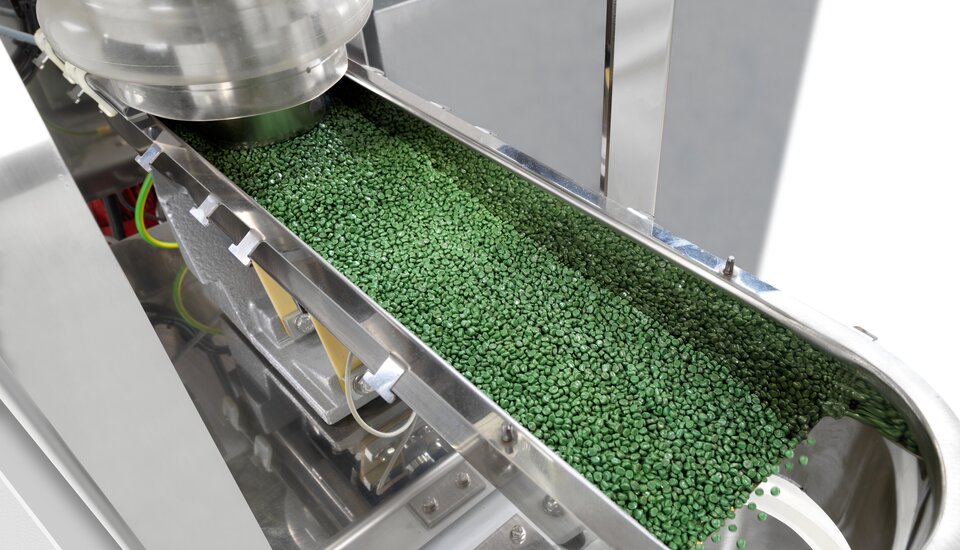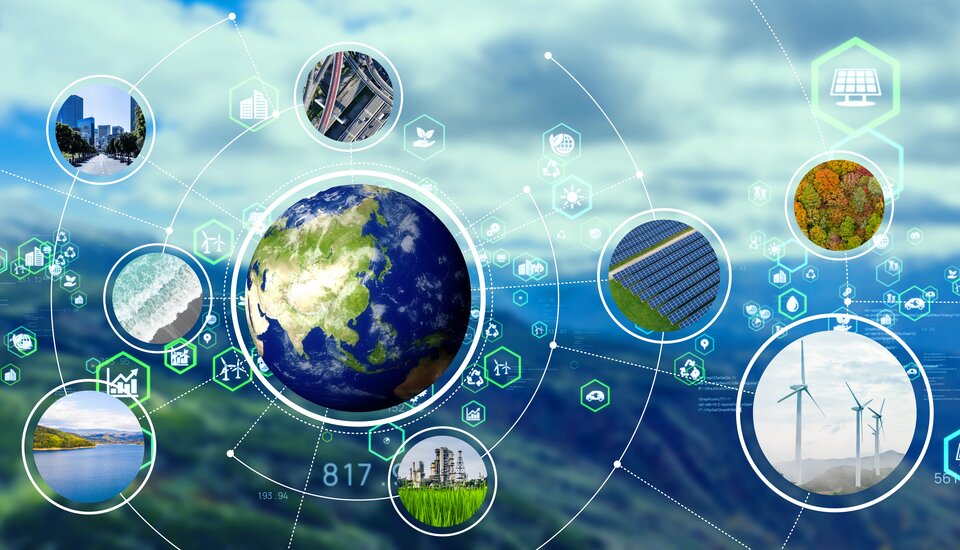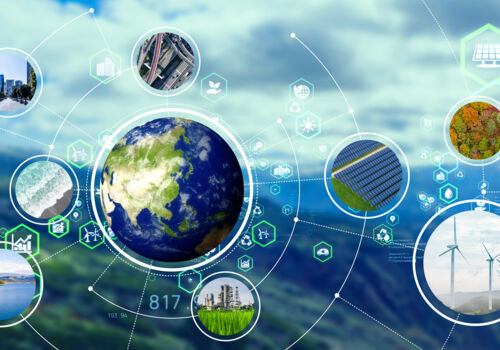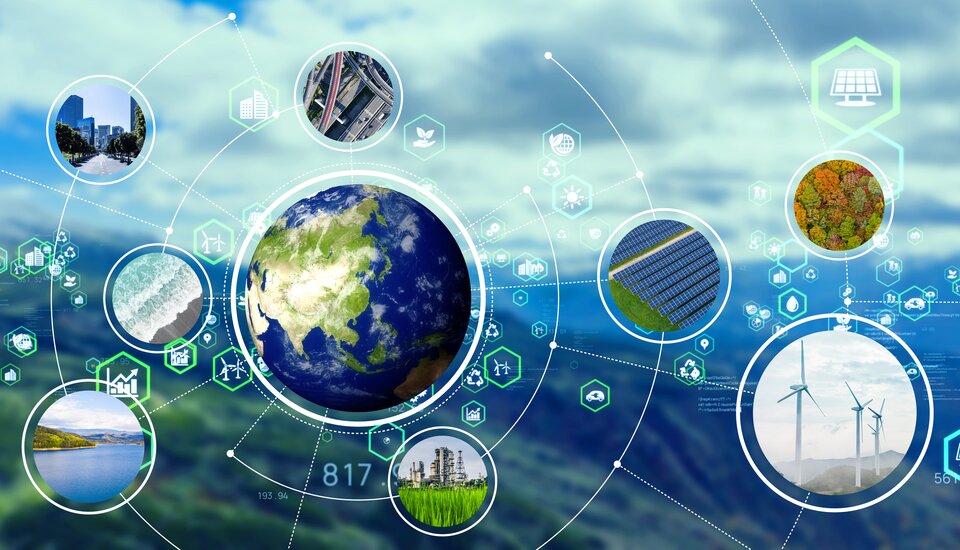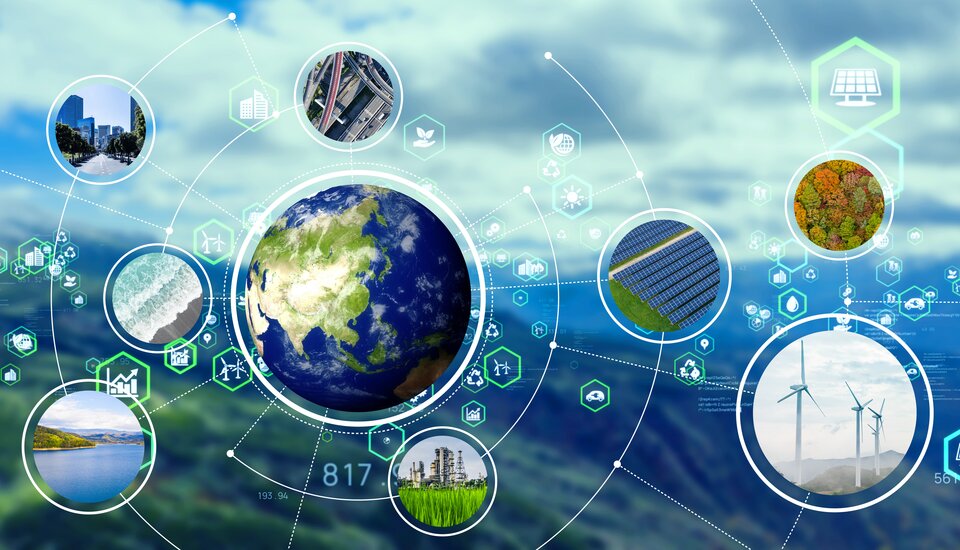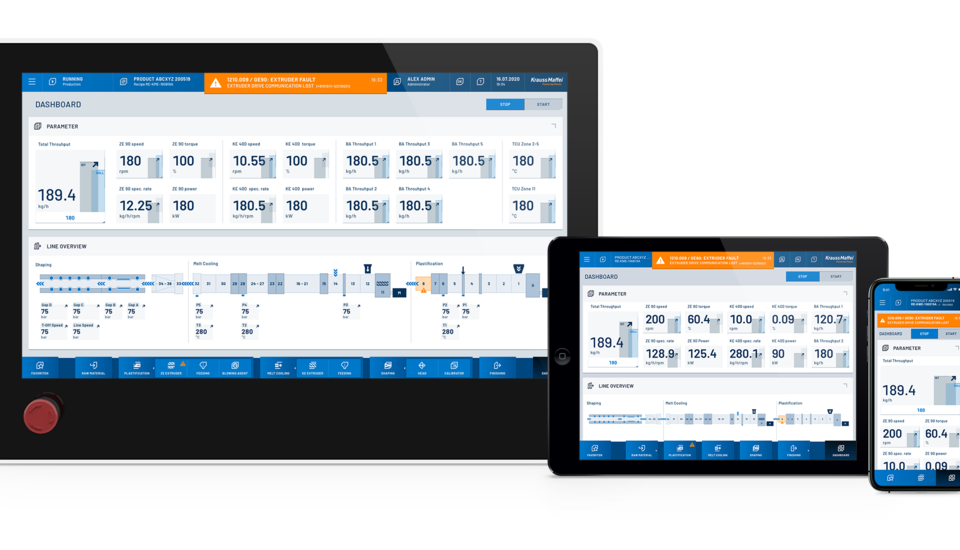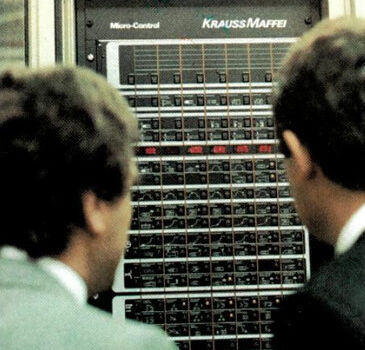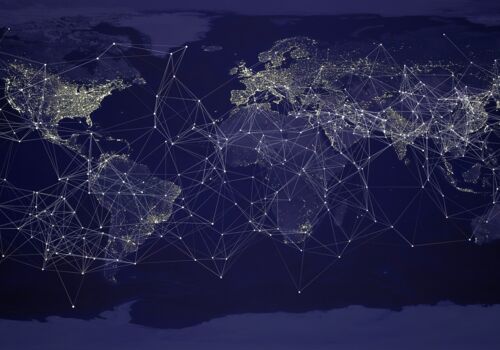
Inspirations
Re-Compounding: The plastics industry on the way to sustainable plastics recycling
| Ralf J. Dahl
A guest article by Dipl.-Ing. Ralf J. Dahl in the Frankfurter Allgemeine Zeitung (FAZ)
In view of the growing mountains of waste in the oceans and on land, the plastics industry is currently looking for new ways to significantly improve the recyclability of plastics. The long-term goal is to create a recycling economy in which most of the plastic waste can be reused in a high-quality manner.
Plastic has become an indispensable part of our lives. In addition to its use in technology, medicine, automobiles, households, infrastructure, construction and leisure, packaging is particularly worth mentioning. In Germany, these usually end up in yellow bags after use and are recycled within the DSD (Dual System Germany). 6 million tonnes of plastic waste are generated annually in Germany, in the EU and worldwide, with a significant upward trend.
In Germany, over 90 percent is recycled either materially, energetically or raw materially, but there is still a lot of room for improvement in the materials sector, i.e. the recycling and reuse of plastics within a recycling economy. This is mainly due to the fact that the quality of plastics recycled by means of previous technologies does not come close to that of plastics made of virgin material. This significantly reduces the range and depth of applications. And even if the German recycling rate is very reasonable by global standards, in view of export business with plastics (waste), responsibility cannot simply be shifted to third countries in the long term. In addition, Western countries have by far the highest per capita consumption of plastics in a global comparison. The fact that the first countries such as China and Thailand, which have so far been the main buyers of European plastic waste, have stopped imports has an aggravating effect on the situation. In addition, relevant German and European legislation on waste recycling will significantly increase the pressure on manufacturers, consumers and waste management companies to develop and apply sustainable and high-quality recycling systems, processes and technologies.
The future of plastics processing belongs to recyclates
In the processing of recycled materials into new plastic products to date, there are fundamental differences and degrees of difficulty in further processing due to the origin of the waste. As a rule, they originate directly from production, are generated after the use of technical products or take the form of consumables such as packaging, so-called post-consumer waste. The starting point for recycling plastics is targeted collection and then sorting of the waste streams so that plastics of the same type can be processed separately. Up to now, these fractions have mostly been melted, filtered and granulated again in simple extrusion processes. However, the disadvantage of these processes - especially for packaging - is that the quality of the material deteriorates as a result of prior processing, its life cycle and the recycling process. Therefore, recyclates from packaging are not suitable directly or only in mixtures for higher quality applications.
However, this problem can be solved by a new process that can produce high quality recyclates. In so-called re-compounding, the physical, chemical, optical and other properties of the recycled material are positively influenced by the targeted addition of, for example, other plastics or elastomers, additives such as fillers or reinforcing materials, pigments and additives. The recycled materials are thus treated like virgin material in a classic compounding process. This new approach converts inferior recyclates into high-quality materials that can be used again flexibly and differently than before, not only for undemanding applications such as flower pots and transport boxes. The odour is still a problem when using post-consumer packaging, as the odour-bearing substances only decompose themselves above the decomposition temperature of the plastic. This requires further time-consuming and energy-intensive material treatments and new processes, some of which are still under development, and currently restricts the use of some post-consumer recyclates.
Composite films remain a problem
Multilayer and composite plastics, which are frequently used in packaging, remain a major challenge. Packaging waste is the main area of application for the recycling industry - in addition to post-production waste, most of which is immediately fed back into the industrial production process, and post-industrial waste. Films are the most commonly used type of plastic for packaging and can consist of up to seven layers of different plastics, metal foils and cardboard. These are very difficult or impossible to separate. This is where previous mechanical processing methods reach their limits and they are hardly usable or not usable at all as plastic mixtures. New, partly chemical or solvent-based separation processes are currently being tested, the cost-benefit costs of which still have to be proven. So what should we do? In order to recycle larger amounts of post-consumer or composite packaging waste, the packaging design would have to find a replacement solution for films or dispense with them in the future. Because plastic that cannot be separated by type is hard to recycle.
The current situation could only be changed by legislation - the automotive industry shows how this can work. For some time now, the industry has been dictating the complete recyclability of the vehicle - including all plastics used. Since the decree, only recyclable materials have been used in the automotive industry. Due to this positive example, it will probably only be a matter of time before politicians in other parts of the plastics processing industry politically enforce recyclability. Industry and its players should therefore now rapidly develop a technical solution that will enable the establishment of a circular economy. In addition to fulfilling the legal requirements, such a development must also ensure economic success.
The large plastics manufacturers such as LyondellBasell or Borealis - but also others - have recognised this, as have the large waste collectors and sorters such as Veolia, Suez or DSD. They have recently started to enter the recycling business. They secure either relevant know-how and compounding capacities or the supply of raw materials in the form of recyclates - through purchase or cooperation.
Now the plastics machinery industry should also face up to its responsibilities and challenges. A joint approach, supported by the industry associations (namely the VDMA), is in everyone's interest here. KraussMaffei, one of the largest manufacturers of plastics machinery and a specialist in compounding, has recently started cooperating with two major machine builders in Germany and Austria. The three companies are now working together to develop a circular economy. Germany could thus become one of the world's pacesetters in the field of completely recyclable plastics.
Source: A guest article of Ralf J. Dahl published 2018 in the Frankfurter Allgemeinen Zeitung (FAZ).

